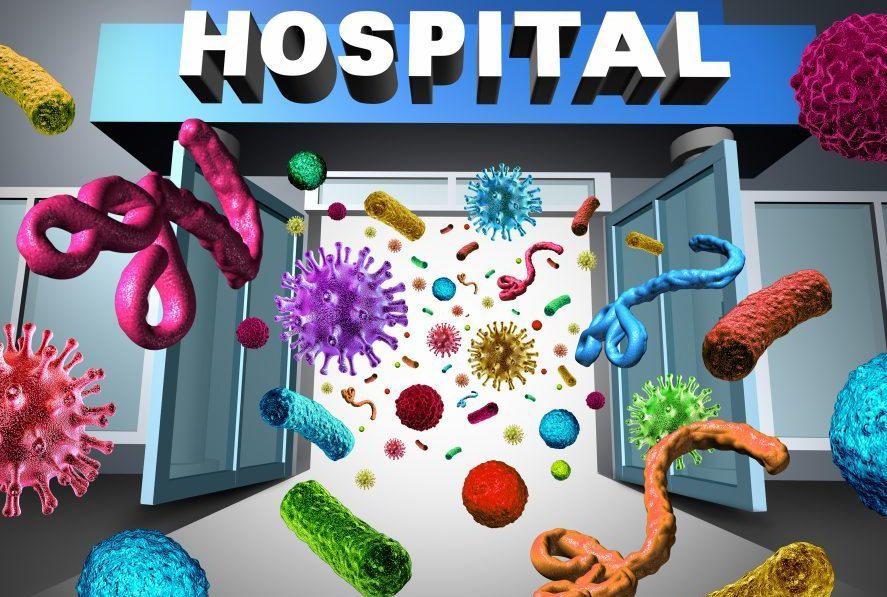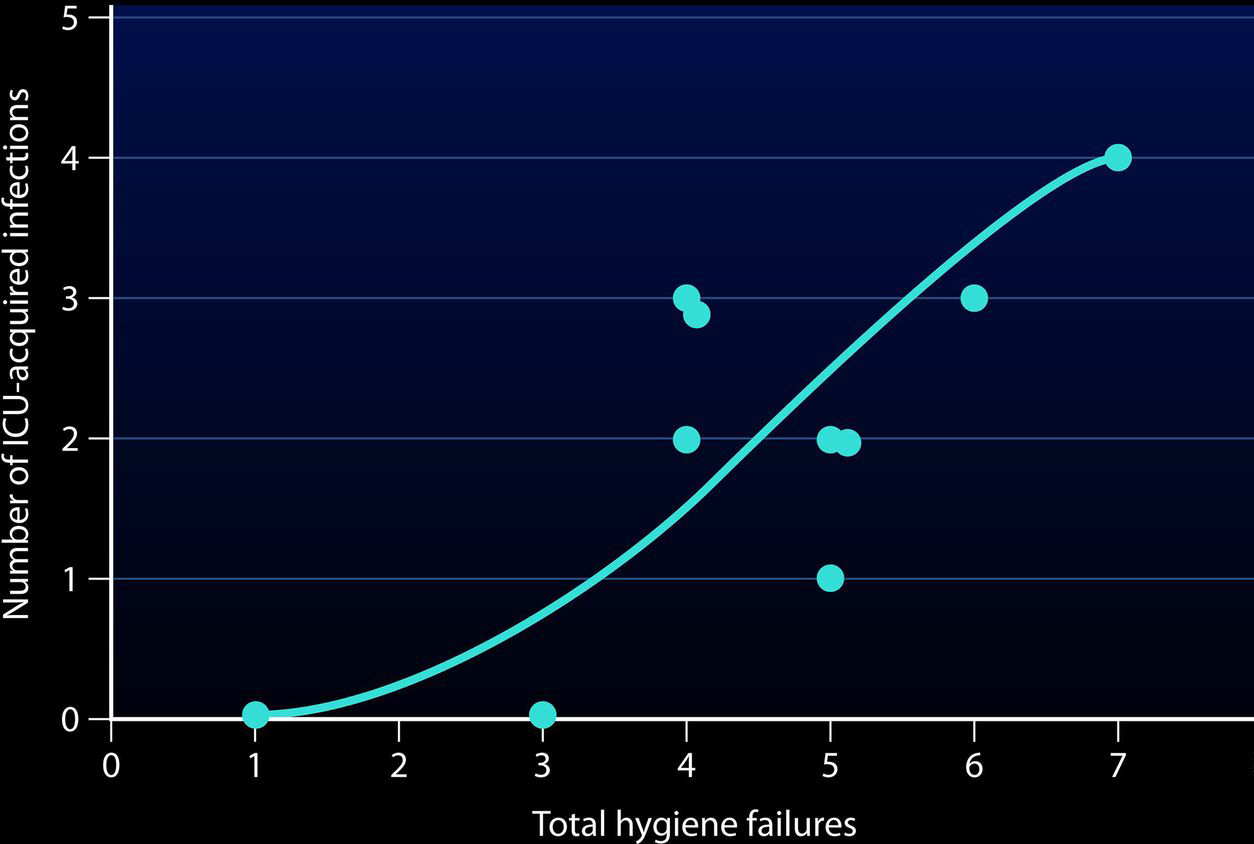In the healthcare sector, infection control plays a critical role. It aims to prevent and manage hospital-acquired infections and the spread of diseases within the community. By implementing a range of effective infection control measures, we can protect the health of patients, healthcare workers, and the public, reducing the risk of infection-related complications and mortality.
Infection control has a significant impact on improving the quality of medical services, reducing healthcare costs, and safeguarding public health safety. In medical settings, infection control strategies prevent the transmission of pathogens among patients, healthcare workers, and visitors, thereby lowering the incidence of healthcare-associated infections. Additionally, effective infection control measures help curb the spread of antibiotic-resistant strains, ensuring the efficacy of antibiotic treatments.
Core infection control measures include proper hand hygiene, cleaning and disinfection protocols, use of personal protective equipment, isolation policies, safe handling of injections and sharps, waste management, and monitoring the air quality, water quality, and building environment of healthcare facilities. Through continuous evaluation and optimization of these measures, infection control specialists ensure adherence to best practices in the healthcare environment, providing patients with safe, high-quality care.
Recent data on hospital infections (nosocomial infections) underscore the crucial role of infection control in healthcare. According to the World Health Organization (WHO), there are approximately 15 million cases of healthcare-associated infections (HAIs) globally each year. These infections result in prolonged recovery times for patients, increased medical costs, and excess mortality. In developing countries, the incidence of HAIs can reach up to 25%, compared to 5-15% in developed nations. Additionally, the emergence of antibiotic-resistant bacteria in recent years has intensified the challenges of infection control.
Efforts to manage these infections are vital for reducing the overall burden on health systems and for safeguarding both patient and public health. These efforts include stringent hygiene practices, comprehensive surveillance, and targeted antibiotic stewardship to mitigate the spread and impact of these dangerous pathogens.



In May 2022, the World Health Organization (WHO) released its first global report on infection prevention and control. This report highlighted the critical role of good infection prevention and control practices in reducing healthcare-associated infections (HAIs). It noted that with effective infection prevention and control measures, the incidence of HAIs could be reduced by up to 70%.
The report further underscored the importance of infection control in the global healthcare sector, especially against infections that can lead to serious complications and death. By improving the implementation and quality of infection prevention and control measures, governments and healthcare institutions can significantly reduce the risk of infections among patients, lower healthcare-related costs, and enhance public health standards.
To achieve these goals, the WHO made several key recommendations in the report, including strengthening training on infection prevention and control, increasing resource allocation, ensuring cleanliness and disinfection of healthcare environments, and establishing comprehensive monitoring and evaluation systems. These measures are designed to help countries enhance their infection prevention and control efforts, thereby providing safer, higher-quality medical services to patients worldwide.
During the COVID-19 pandemic, infection control and disinfection equipment played a crucial role in preventing and controlling the spread of the virus.
Due to the high contagiousness of the coronavirus, healthcare facilities had to implement stricter infection control measures to ensure the safety of patients, healthcare workers, and visitors. Infection control and disinfection equipment were vital for slowing the spread of COVID-19, especially in high-risk areas such as intensive care units, respiratory therapy departments, and emergency rooms. These devices thoroughly clean and disinfect items that come into contact with the virus, such as surgical instruments, ventilators, bed linens, and protective clothing, reducing the risk of cross-infection.
Furthermore, in response to the challenges posed by the COVID-19 pandemic, many manufacturers of infection control and disinfection equipment developed new devices and technologies targeted at the virus’s characteristics. For example, the use of ultraviolet light and hydrogen peroxide plasma, which are highly effective disinfection technologies, can achieve a high level of disinfection in a short amount of time.
During the COVID-19 pandemic, healthcare institutions needed to focus on and optimize the use and management of infection control equipment, including regular maintenance, monitoring disinfection effects, and training staff, to ensure that the equipment remains efficient and safe in facing pandemic challenges.
In summary, in the context of the COVID-19 pandemic, infection control and disinfection equipment are crucial for controlling the spread of the virus, ensuring the safety of the internal environment in healthcare institutions, and improving the safety of patients and healthcare workers.
In the healthcare sector, which faces ongoing challenges, we remain dedicated to infection control, offering comprehensive solutions. Our products and services are designed to address various infection risks, ensuring the safety of patients, healthcare workers, and visitors to achieve outstanding medical care results.
Our infection control solutions include efficient washing and disinfection equipment, sterilizers, air purification systems, and associated disinfecting consumables. These products undergo rigorous research and development and quality control processes, meeting international certification standards and catering to different medical environments’ needs.Our FED series fully automatic endoscope reprocessors and DLZ series hydrogen peroxide low-temperature plasma sterilizers employ advanced technology to achieve efficient and safe sterilization quickly, suitable for various surgical instruments, medical equipment, and sensitive items. Additionally, our washing and disinfection equipment ensures thorough cleaning of medical instruments and equipment surfaces, reducing the risk of cross-infection.
We not only offer high-quality infection control products but are also committed to providing comprehensive support and services to our customers. Our professional team can provide technical consultations, training, after-sales maintenance, and more, ensuring you are consistently satisfied while using our infection control solutions.
In summary, with a focus on infection control, we are committed to providing you with the best solutions, working together to create a safe and healthy medical environment.
模式一.png)